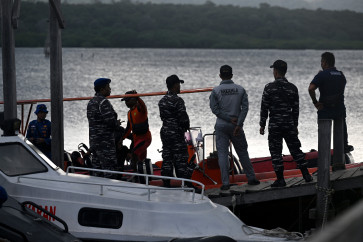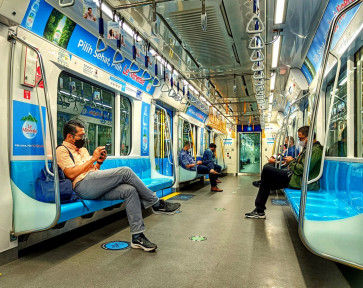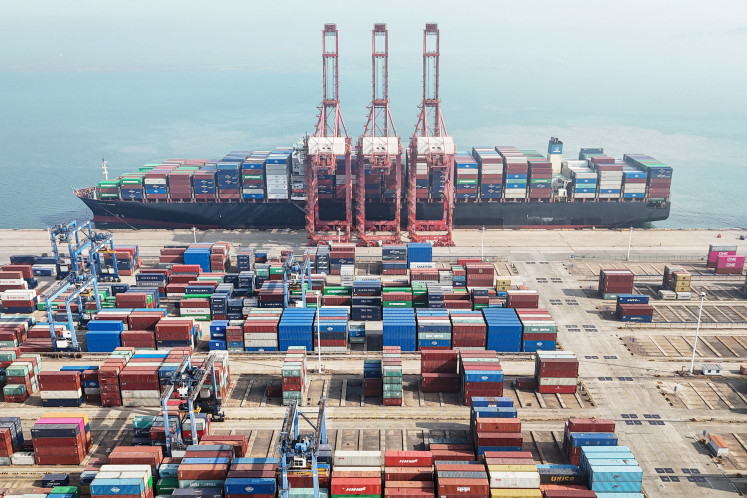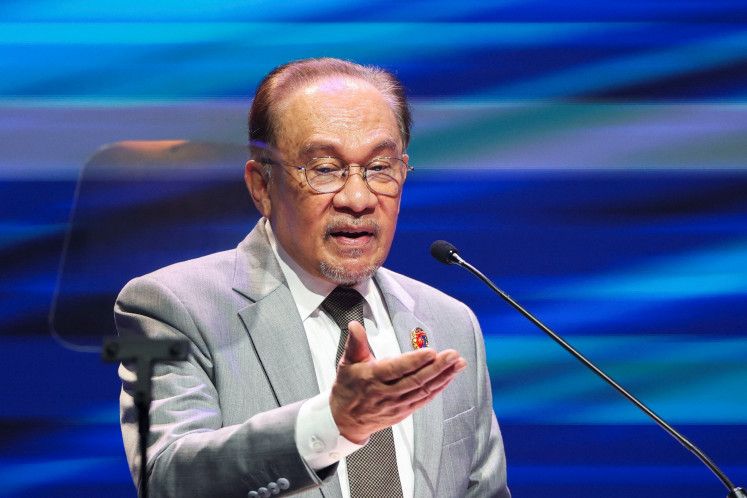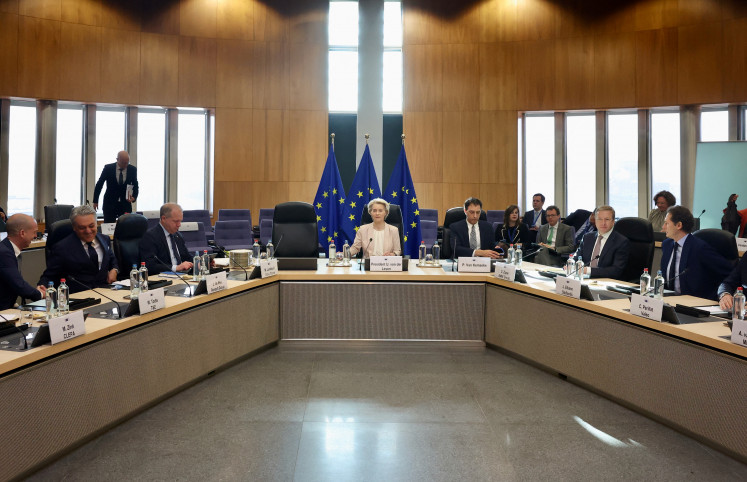Popular Reads
Top Results
Can't find what you're looking for?
View all search resultsPopular Reads
Top Results
Can't find what you're looking for?
View all search resultsJokowi launches mega power plant projects
President Joko âJokowiâ Widodo launched on Monday his ambitious plan to build power plants to produce 35,000 MW of electricity
Change text size
Gift Premium Articles
to Anyone
P
resident Joko 'Jokowi' Widodo launched on Monday his ambitious plan to build power plants to produce 35,000 MW of electricity.
The 35,000 MW for Indonesia Program is expected to be realized within the next five years in 240 places across Indonesia.
'The program is part of efforts to not depend on fossil fuel,' Jokowi said in his keynote address at Goa Beach, Cemara, Gadingsari, Sanden, Bantul, Yogyakarta.
Jokowi acknowledged that many had criticized the 35,000 MW for Indonesia Program as being too lofty because Indonesia had only managed to build plants that produce 50,000 MW of power in the past 70 years.
However, he iterated that the program was realistic, as it had been backed up with simplified regulations and the program would be thoroughly supervised.
'This is our debt to the people to uphold their right to electricity,' Jokowi pointed out, adding that the equal distribution of power throughout the country would also have positive impacts on industry and the downstream economy.
The program will require an investment of Rp 1.1 quadrillion. The program is expected to propel the industrial sector as 60 percent of the program's components are expected to be locally made.
'We will support the transformer, cable and transmission network industries to meet the needs in the next five years. We will give priority to the private sector,' said Jokowi.
'If the private sector does not immediately take part, I will instruct the state-owned enterprises minister to become involved,' he emphasized.
During the inauguration, Jokowi was accompanied by Yogyakarta Governor Hamengkubuwono X, Energy and Mineral Resources Minister Sudirman Said and state power firm PLN managing director Sofyan Basir.
Sudirman said that assuming an economic growth of between 5 and 6 percent annually, an additional 7,000 MW of electricity would be needed annually.
To meet the demand of 35,000 MW in the next five years, 10,000 MW will be produced by PLN and the remaining 25,000 MW by the private sector.
The 35,000 MW program needs to be realized because Indonesia will be depleted of oil within 20 years, natural gas within 30 years and coal within 50 years.
'As many as 20 million people will directly benefit from the program, 100,000 workers will be involved in the program and more than Rp 450 trillion worth of locally made components will be used in the program and this will drive the industrial sector,' said Sudirman.
The first phase of the power plant project will focus on Java and Sumatra, and plants powered by more sophisticated technology ' such as hydro or solar ' will also be built in developing areas in eastern Indonesia, including Papua and Nusa Tenggara.
Jokowi also inaugurated a wind-powered plant project on Samas Beach in Bantul on Monday.
PLN Strategic Procurement and Energy director Amin Subekti said that based on a study on wind conditions at Samas Beach, 35 wind turbines would be installed at the Samas Beach power plant
'This will be the first and biggest in Indonesia. The turbines are expected to produce 50 MW of power,' said Amin.
Economists, however, have voiced doubt over Jokowi's ambitious pledge, saying it could pose economic risks, noting the potential for a deterioration of the current-account deficit, as most of the material used in the plants would be imported.
Power plant projects will be the biggest absorber of machinery imports ' including goods like boilers, turbines and transformers ' with the amount of overseas purchases standing at US$4 billion annually, or about 0.3 percent of Indonesia's expected gross domestic product (GDP) in 2017, according to a calculation by Citigroup.


